Inclusion of Children With Disability In Farmer Managed Natural Regeneration (FMNR) Implementation
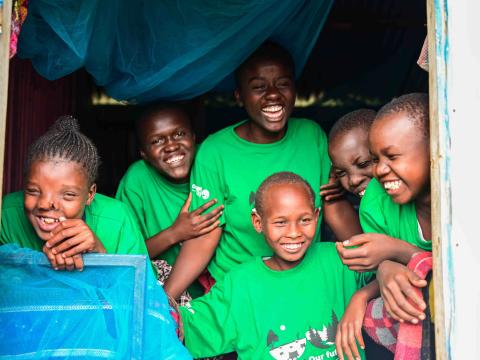
Students at Emining Special School for the Visually Impaired in Baringo County have gone above and beyond to show that disability is not an impediment. It all comes out in their enthusiasm, commitment, and love for putting the Farmer Managed Natural Regeneration (FMNR) method into practice. When asked why they love their school, the majority of 4K club members answered simply, "Because of FMNR." The pupils feel valued and distinguished because their school was among those chosen in the area to work with World Vision in the implementation of FMNR.
“We are grateful that World Vision has selected us as a partner school to implement FMNR. We do not take this for granted. More often than not, children with special needs are overlooked,” says Carolyne Jerono, the Headteacher, Emining Special School for the Visually Impaired.
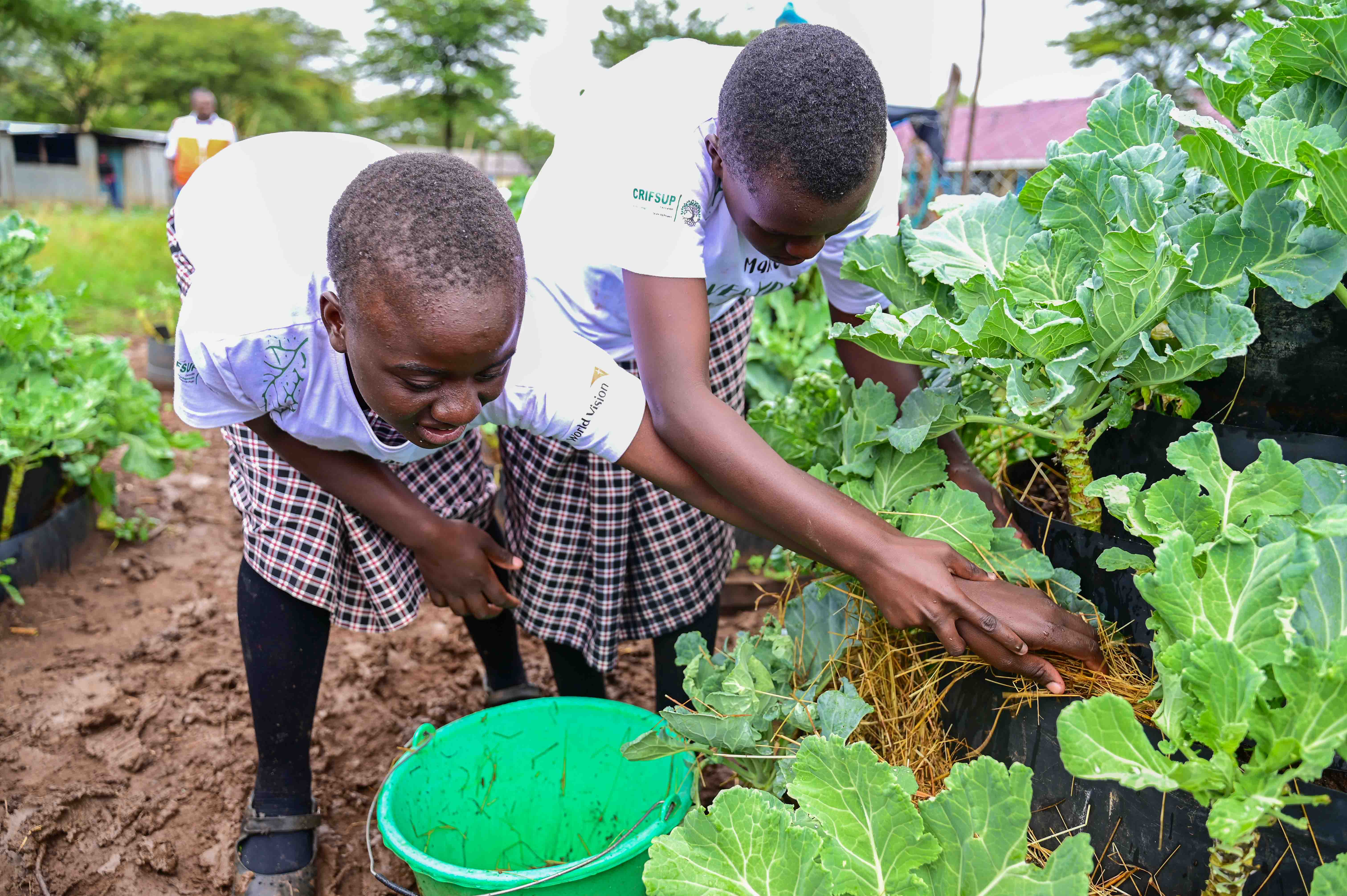
A 2.8-acre plot of land has been set aside and fenced by the school specifically for the FMNR approach. In order to teach 1,600 school-children about FMNR and environmental conservation through 4K clubs, World Vision is collaborating with 80 schools in the Baringo, Elgeyo Marakwet, Nakuru, and West Pokot Counties through the Central Rift Farmer Managed Natural Regeneration Scale Up Project (CRIFSUP). The Australian Department of Foreign Affairs (DFAT) provides funding for this initiative through the Australian NGO Cooperation Program (ANCP).
Emining Special School for the Visually Impaired has a total of 53 students, consisting of 19 girls and 34 boys. All of the students have some form of visual impairment, which is categorized as partially sighted, low vision, or total blindness. The causes of their vision impairments vary, with factors such as genetics, accidents, or illnesses like meningitis contributing. Only 6 students were born with their vision impairments, while the rest acquired them over time. The age range of the student body at the school spans from 6 to 20 years old.
There are twenty members of the 4K club at the primary school. Children who are partially sighted or have low vision are paired with children who are completely blind to help one another during club activities, academic pursuits, and daily school routines.
Selly Chepyator, the 4K Club patron, trains the children using a variety of methods, such as hands-on exercises, singing, poetry, and using touch to make sure everyone understands, regardless of the nature of visual impairment.
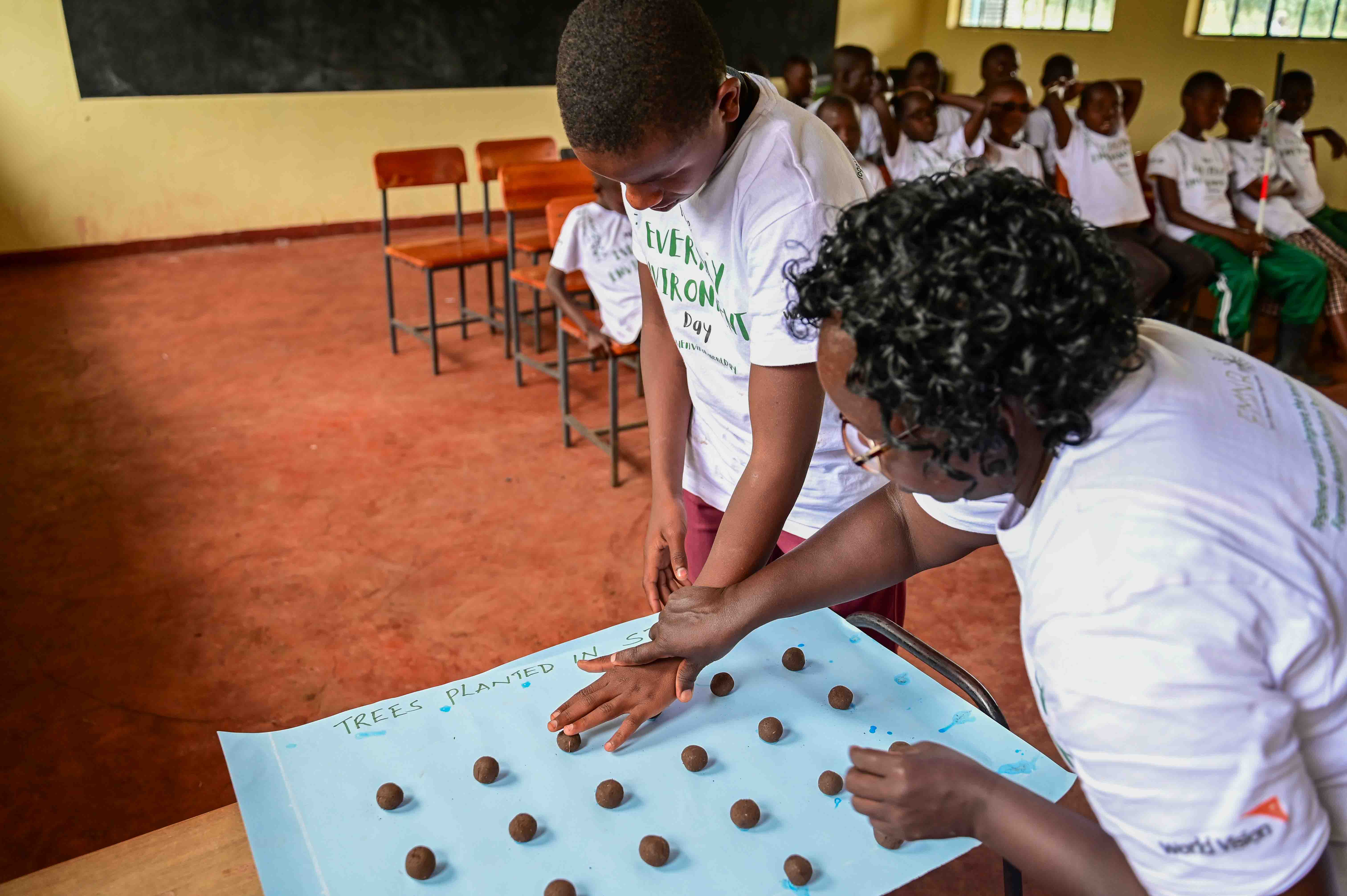
"We use children's manuals given to us by World Vision to teach pupils about five key thematic areas related to FMNR and environmental protection. To ensure students thoroughly grasp the concepts, we incorporate theoretical and practical activities into the lessons,”Selly says.
“The 4K club patrons were taken through a training on FMNR and provided with FMNR children’s manuals used to train students during club sessions. We regularly visit the schools to monitor the gradual progress made,” says Triza Kigen, Project Officer and Agricultural Specialist at CRIFSUP, World Vision Kenya.
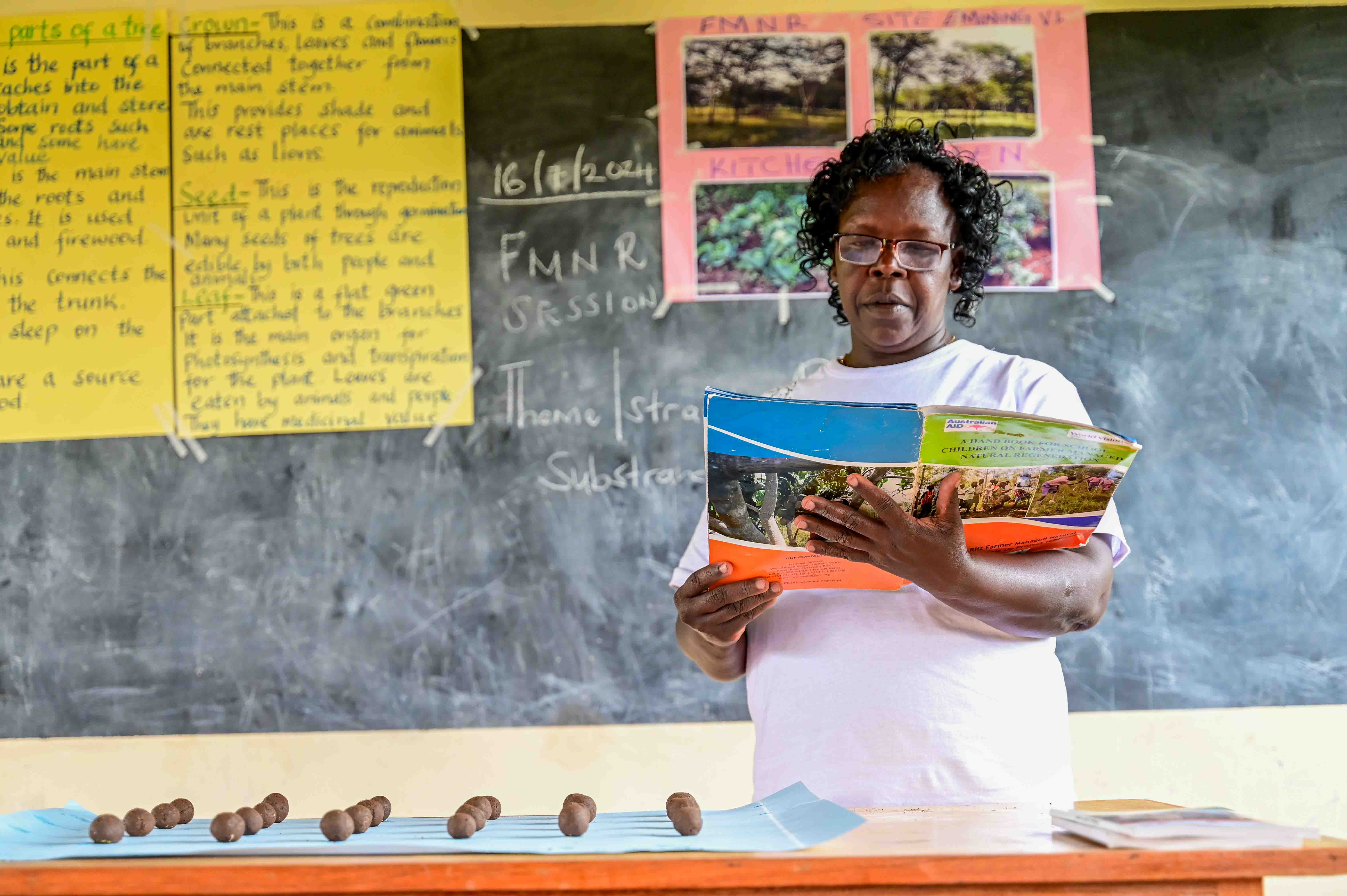
Nancy Cheruiyot, the school matron, claims to have seen significant changes in the children's health, social welfare, school environment, and income since inception of the FMNR approach in 2023.
She states, “We can now afford a balanced diet because of FMNR. There are fewer cases of diseases now than there were previously.”
Originally intended to be cleared and used for farming, the FMNR farmland that was once abandoned is now a source of holistic benefits for the school. The school has been able to save money that was previously spent on purchasing firewood, since they prune trees in their FMNR farmland. They occasionally had to chop down entire trees to obtain fuelwood. Their goat, which is milked daily and yields one litre of milk that is used to make tea for breakfast, is also fed on the leaves of regenerated trees.
Additionally, their kitchen garden is a source of vegetables (kales) which the children enjoy eating. They at times sell the surplus vegetables and use the money to buy meat and fruits. With availability of various sources of nutrients, the students are able to enjoy a balanced diet that builds their strength and health.
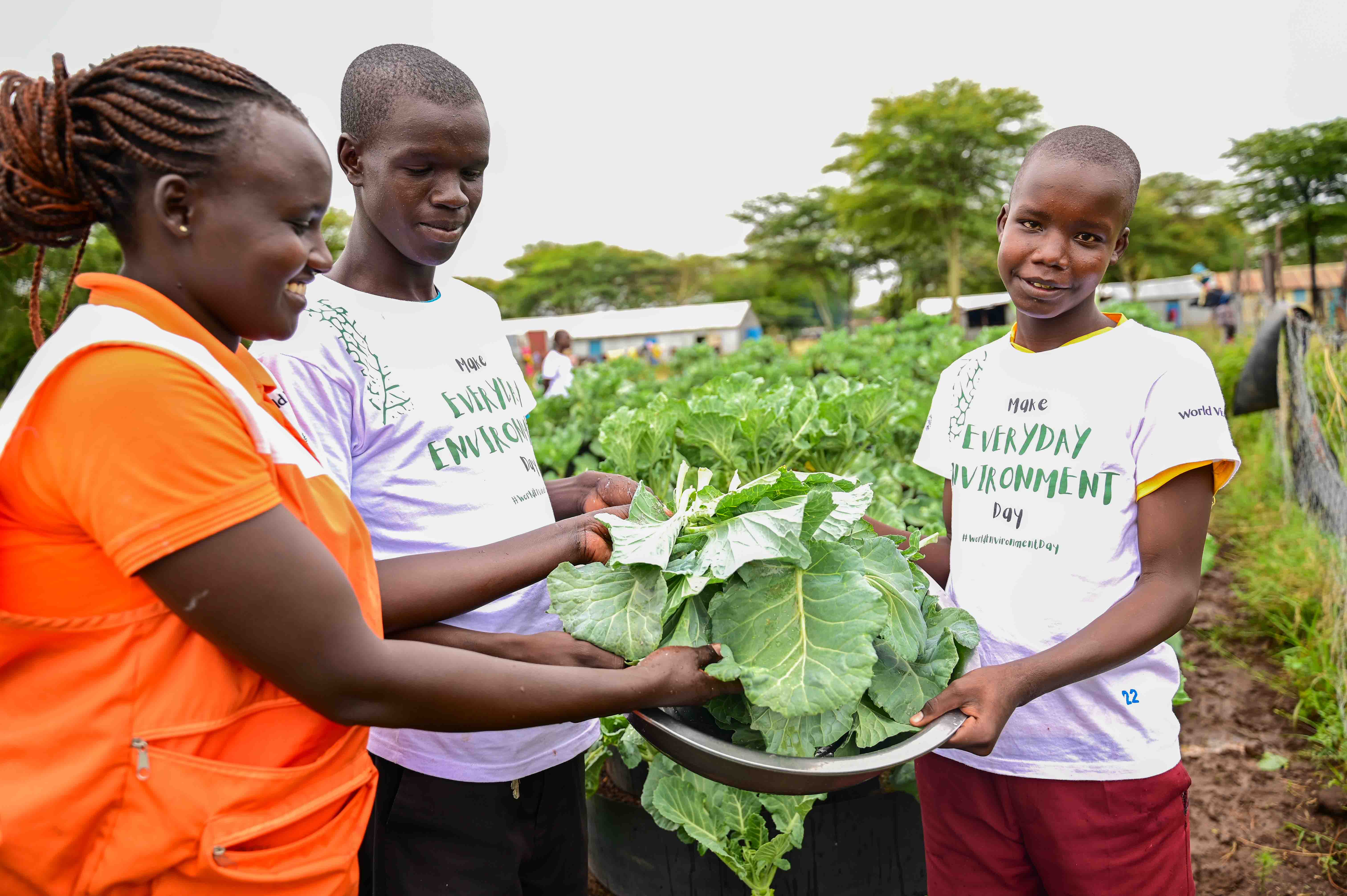
"These children are now bright and happy," remarks Zipporah Rono, Senior Teacher and Assistant Environmental Patron at Emining Special School for the Visually Impaired. “Many of them get sick in the first few weeks of school, but after a month or so, they rarely visit the hospital, indicating that proper diet has a major role in improving health. Right now Due to the abundant and consistent supply of vegetables grown on the school grounds, pupils are able to eat well, go to bed early, and take their medications on time.”
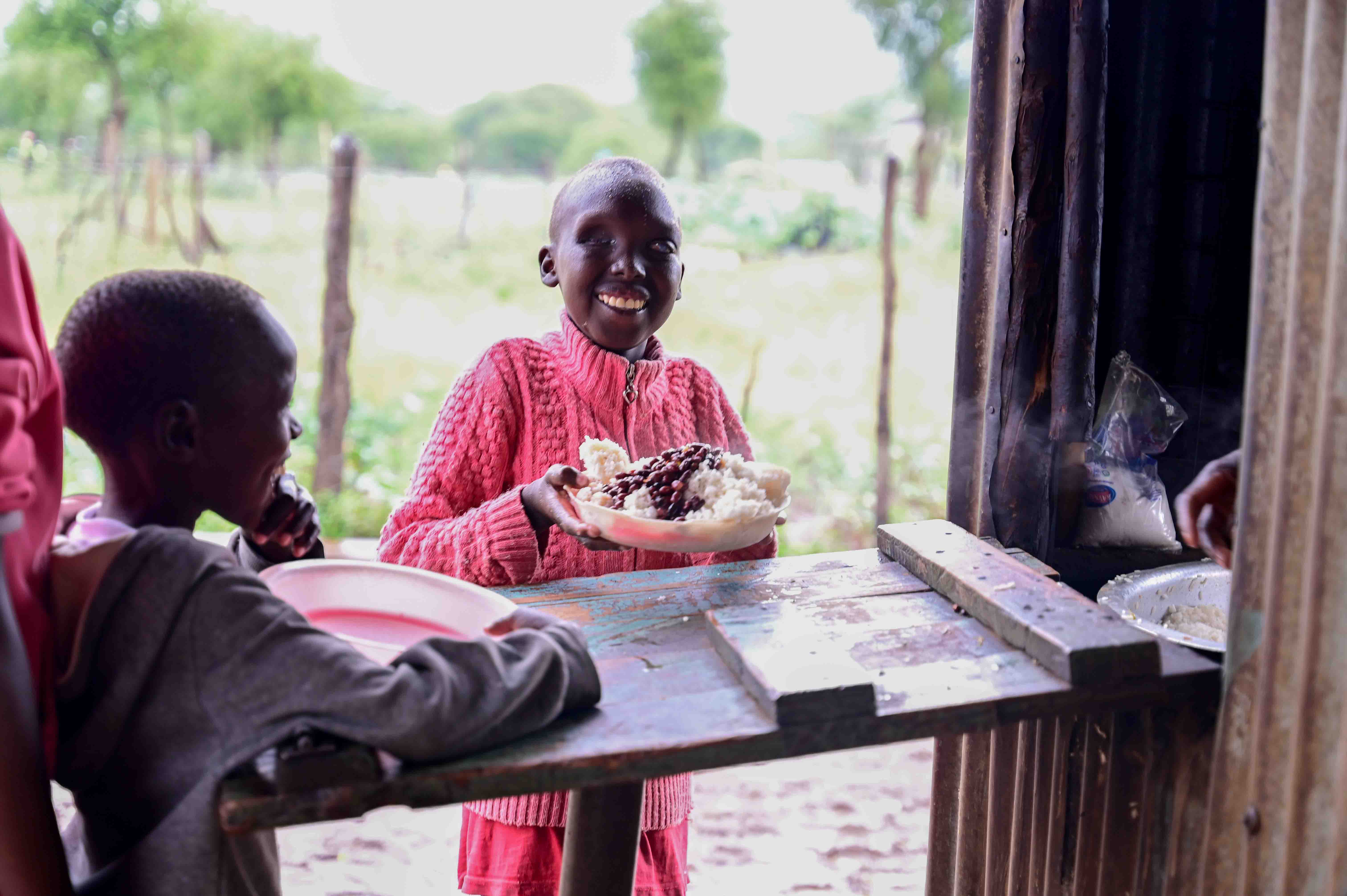
According to the Headteacher, the majority of these children come from extremely low-income families, and some of them occasionally choose to remain in school where they are assured of receiving food and having a social life.
“Only 5% of parents are able to pay the entire 5,200 KES (40.15 USD) in school fees each term, which is the amount that is expected of them. Since we are unable to send the students back home due to arrears, we make do with what is available," explains Carolyne.
“In addition to the FMNR training, World Vision has provided us with two 5,000-liter water tanks,” Carolyne continues, "They have proven crucial in helping to store water needed for irrigating the kitchen garden and other uses within the school compound.”
One person who has immensely benefitted from these water tanks is Nancy who used to go a kilometer to and from the river with a 20-liter jerrycan of water on more than five occasions a day. This water was to be used for bathing the kids, cooking, laundry, and daily consumption. Nancy now has more time and energy as the matron to attend to the needs of the pupils.
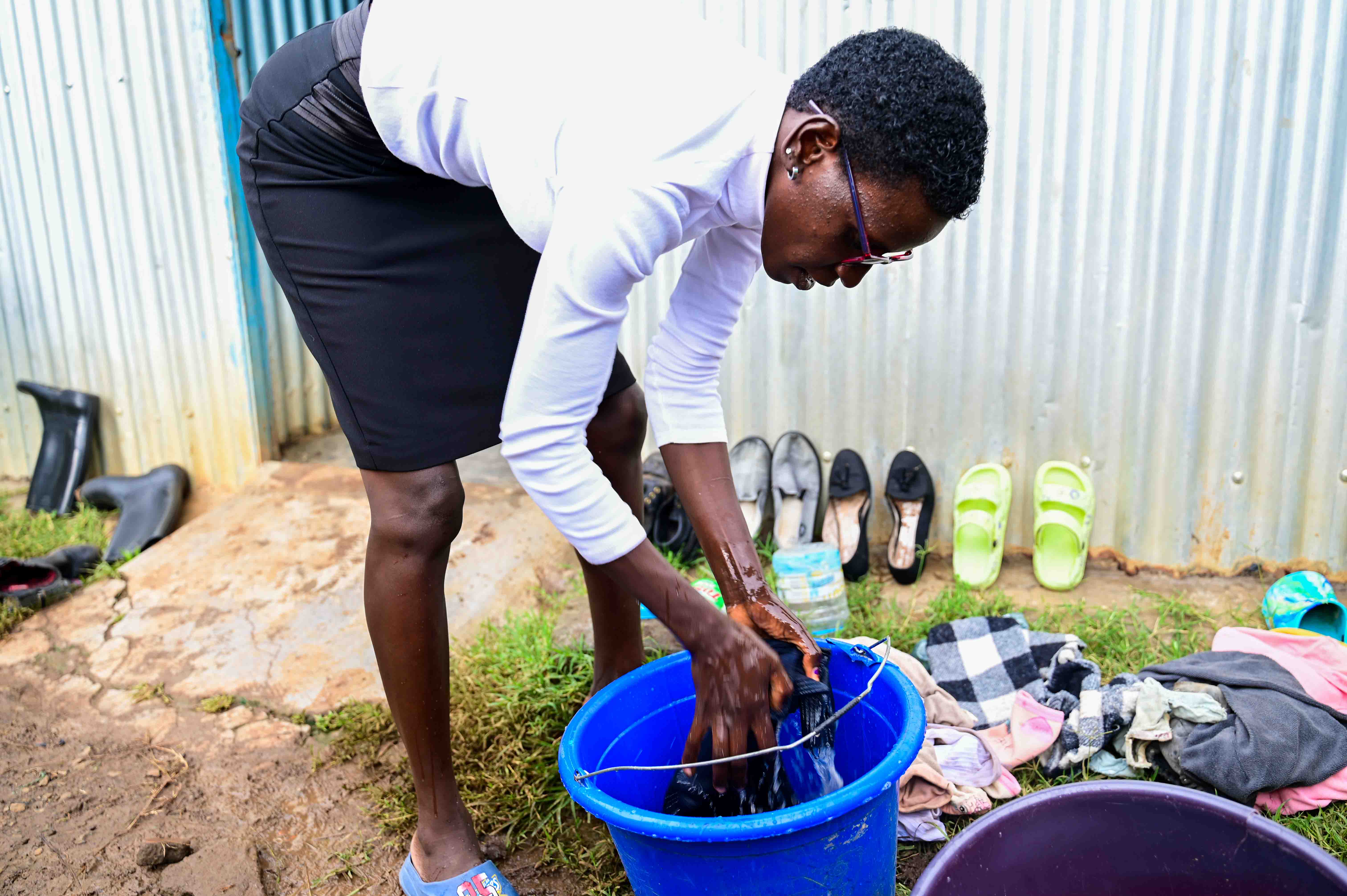
Zipporah explains, ”We only started a 4K Club in the school after being trained on FMNR. The pupils now have higher self-esteem as a result of these activities. They believe they are capable of making an impact. Particularly when they sell their farm produce.”
In the month of April 2024, the school sold 95 Kilograms of vegetables at 25KES (0.19 USD) per kilo. With participation of the students and teachers, they agreed to purchase hens and bread with the proceeds.
Zipporah shares an experience of the transferrable skills the students are gaining. She says, ”A parent called me once to express gratitude for training the daughter on kitchen garden. The student went home and planted vegetables in sacks. They will no longer need to buy vegetables. The young girl made an impact in her family. Myself, having learnt from World Vision, I also practice FMNR at home.”
Zipporah adds,” Thanks to Australian Aid, we have managed to change the perception of the students toward themselves and that of the community towards our school. Community members now feel challenged and inspired by the amazing work the children do on their FMNR farmland and kitchen garden.”
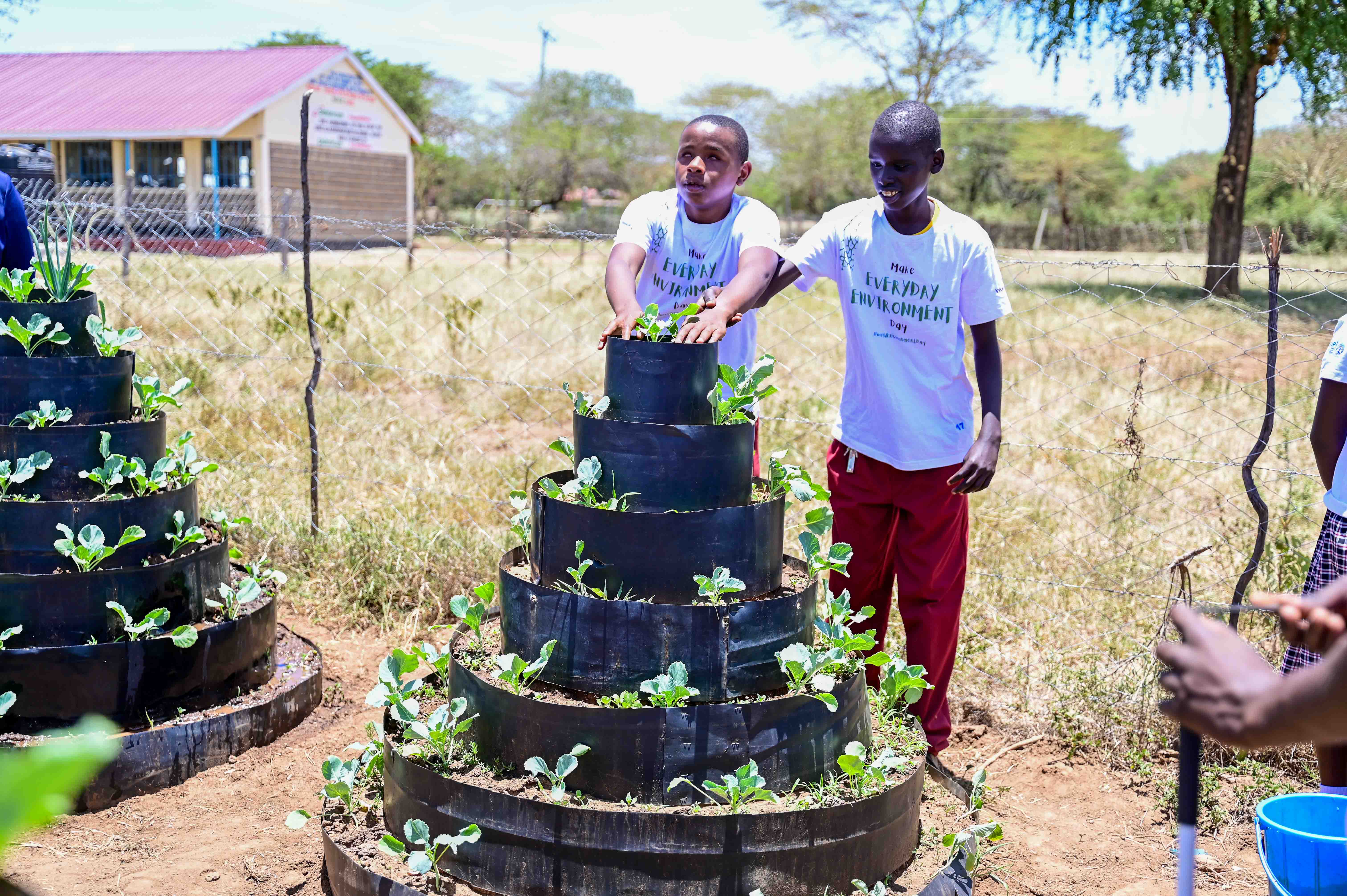
Zipporah and Selly who also teach these students other subjects in the school say that their performance has improved since they are more confident to learn and try out new things.
Zipporah recalls a moment that meant a great deal to the students saying, “Children with Disability are normally segregated. In 2023, World Vision provided the students t-shirts and facilitated them to participate in the World Environment Day celebrations. This highly motivated the pupils who felt like they can be part of the community where they engaged with students from other schools.”
The students proactively take it upon themselves to ensure that every individual takes care of the environment and report any destruction caused to the matron. The students have also attested to pruning trees when they go back home.
As much as these students have a great time at school, they certainly have their share of difficulties. There are occasions when they struggle because of the drastic weather changes. The iron sheets used to construct their dormitories and some of the classrooms, can cause the rooms to be excessively hot or cold depending on the season.
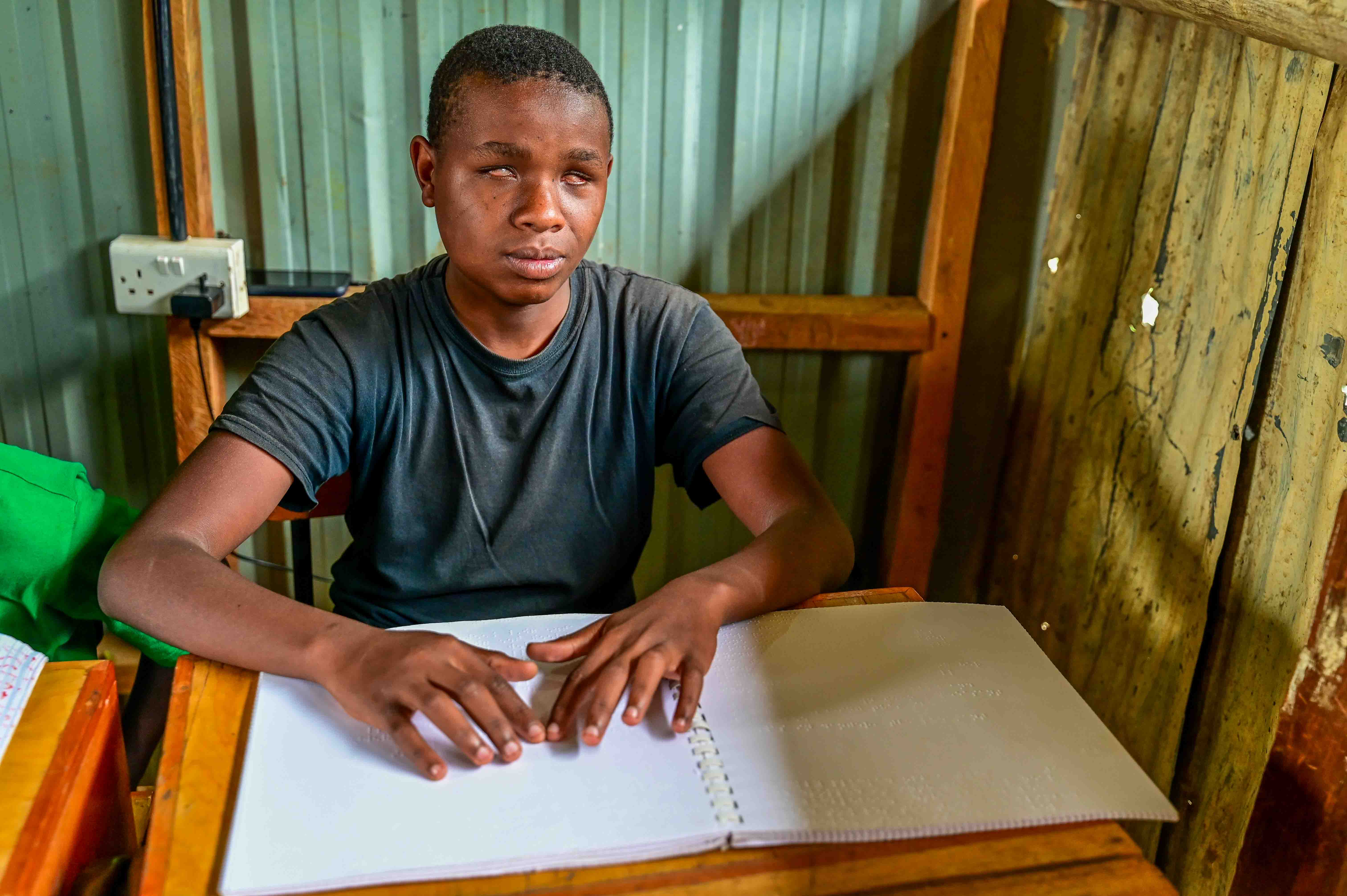
Sometimes the learning resources are not only costly but also insufficient for all students when needed. Depending on the type of visual impairment, students may either use braille, magnifying devices, large print books or papers or glasses to aid in their learning process.
Notwithstanding the difficulties that still arise, the ten teachers and support staff in the school view caring for these kids as a calling that they pursue wholeheartedly.
“I sincerely want to appreciate Australian Aid for the good work being done through the donation to World Vision. World Vision is able to reach the needy persons in the society, including children with special needs like the students here. May God bless them for boosting the self-esteem and giving hope to the learners who actually didn’t have hope in life,” Carolyne states.
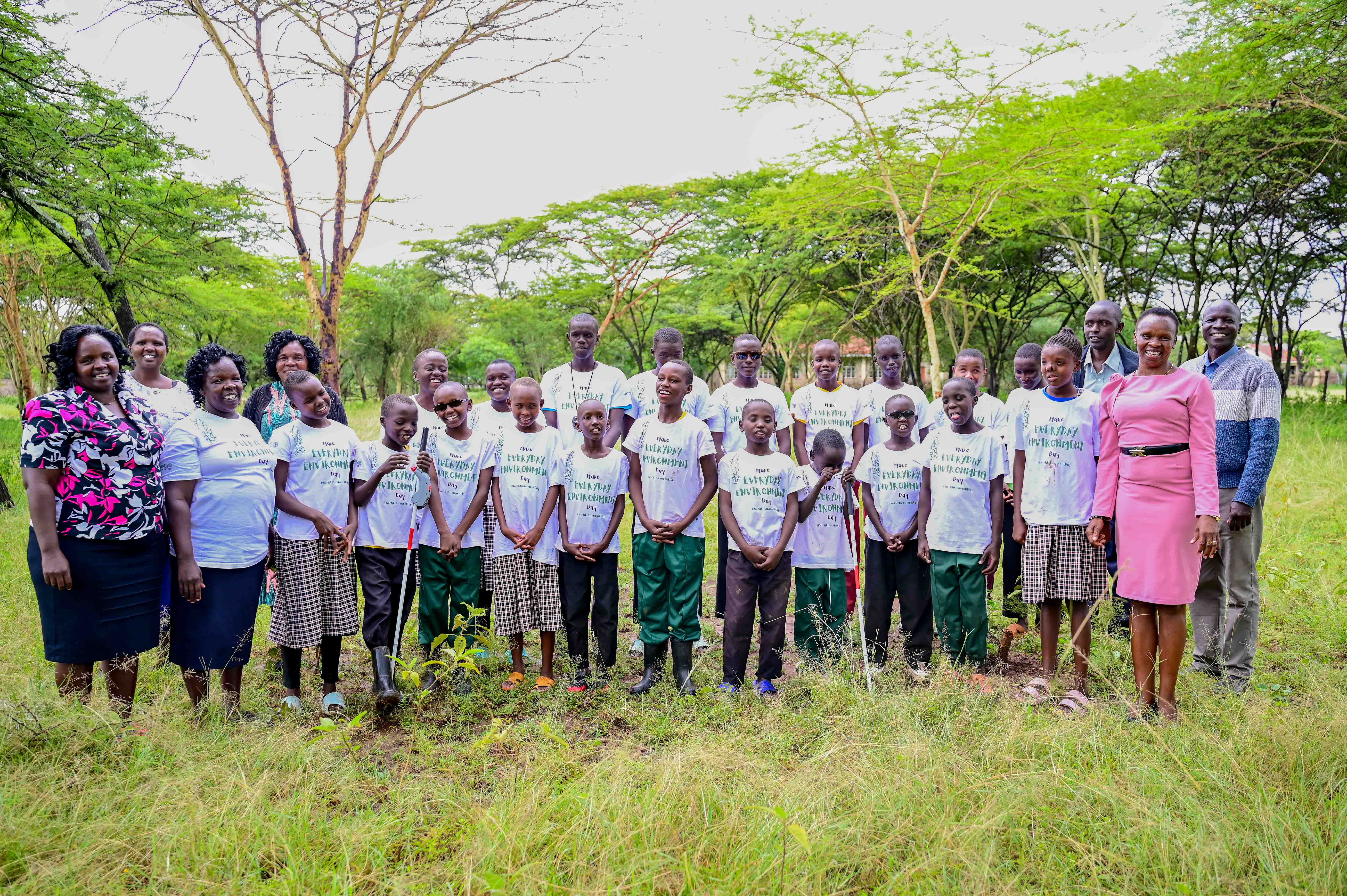
By Hellen Owuor, Communications Specialist (CRIFSUP) , World Vision Kenya